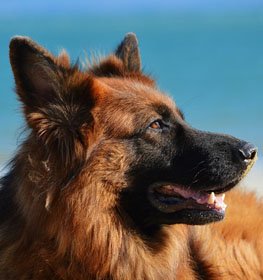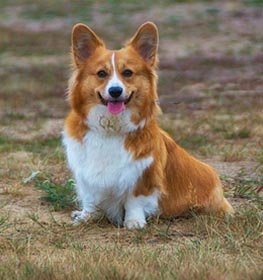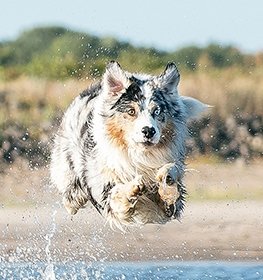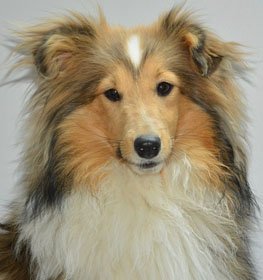Huntaway Information & Dog Breed Facts
Collection of all the general dog breed info about Huntaway so you can get to know the breed more.
| Group | Pastoral / Herding Dogs |
|---|---|
| Popularity Rank | 280 |
| Reviews | 3 |
| User Ratings | |
|
Compare the Huntaway With Other Dogs
Select at least one dog breed to make the comparsion. | |
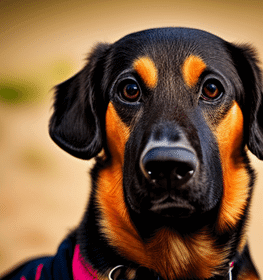 | |
| Origin | |
|
Common Names & Aliases
What other names is a Huntaway known by? Discover all traditional, regional and informal names used for this breed. | NZ HuntawayNew Zealand HuntawayNew Zealand Sheepdog |
|---|---|
|
Breed Classification
What type of dog breed is a Huntaway? Learn about its genetic classification and breeding category. | Purebred |
|
Size Classification
What size category is a Huntaway? Learn how big the Huntaway breed typically grows. | Large |
|---|---|
|
Weight Statistics
How much does a Huntaway weigh? Discover typical weight ranges for adult males and females of the Huntaway breed. | 40-65 pounds (18-30 kg) |
|
Average Weight
What is the average weight of a Huntaway? | 52.5 pounds (24 kg) |
|
Height
How tall is the Huntaway? Huntaway height: | 20-24 inches (51-61 cm) |
|
Average Height
What is the average height of a Huntaway? | 22 inches (56 cm) |
|
Price Range
How much does a Huntaway puppy cost? Find current market prices and factors affecting Huntaway costs. | $300-$400 If you choose to purchase the Huntaway, you should know that the mentioned amount of money is an average of the collected data from breeders’ sites and puppy finder places. If you have a Huntaway for sale, please advertise it on a reliable website to make sure the Huntaway gets to a happy place. |
|---|---|
|
Availability
How easy is it to get a Huntaway? How many Huntaway are there in the world? | Average: The Huntaway is a commonly available dog breed. There is less risk of overbreeding compared to the very popular dogs. Of course, they may be more popular in some countries, and inbreeding may occur, so be careful. |
|
Intelligence Rating
How intelligent is a Huntaway? Discover the Huntaway's intelligence ranking and learning capabilities. | Smart: The Huntaway dogs have great intelligence. They understand and memorize new commands in 15-25 repetitions.
The Huntaway is among the smartest dogs in the intelligence ranking. |
|---|---|
|
Training Difficulty
How easy is it to train a Huntaway? Learn about the Huntaway's trainability and response to training methods. | Huntaway dogs are easy to train. They find out the association between commands and actions quite quickly. |
|
Watchdog Rating
How good is a Huntaway as a watchdog? Learn about the Huntaway's alertness and guarding instincts. | Huntaway dogs are not the best watchdogs. They aren't very territorial and protective about their property, so they probably won't alert you if they sense something different. |
|
Territorial Protection
Is a Huntaway protective of its territory? Learn about the Huntaway's guarding instincts and behavior. | Huntaway dogs are not the best to protect their territory. Better to have the protection of your house and property supervised by others. |
|
Personality Traits
What personality does a Huntaway have? Learn about characteristic Huntaway temperament and behavior traits. | ActiveEnergeticIntelligentFriendlyTrainableVocal |
|---|---|
|
Sensitivity Level
How sensitive are they? Huntaway sensitivity: | They are a little bit more sensitive than other dog breeds. Soft punishment affects them emotionally. Huntaway dogs don't tolerate irregular daily routines, noisy households, and frequent guest visits really well.
They are receptive to their owner's emotions and make wonderful family companions. |
|
Affection Level
How affectionate are they? Is a Huntaway a good family dog? | Average to High: Huntaway dogs are highly affectionate dogs. They like being involved in the family's life. This breed isn't considered an aloof dog. |
|
Social Needs
How much social interaction does the NZ Huntaway need? Huntaway social needs: | Huntaway dogs are a social breed. They enjoy being around people or other animals. This breed doesn't tolerate being left alone. |
|
Impulse to Wander or Roam
How likely is the Huntaway to run away? Does this breed explore or wander a lot? Does Huntaway roam? | Huntaway dogs are not the biggest explorers. They have low wanderlust potential. Low chance of escaping from home with this breed. |
|
Prey Drive
Do this canine have a strong prey drive? Does Huntaway have high prey drive? | Their prey drive is low. Huntaway dogs don't have an impulse to catch or chase small animals. |
|
Barking Frequency
Does a Huntaway bark a lot? Learn about typical Huntaway vocalization patterns and triggers. | A lot: Huntaway is a particularly loud breed. They often enjoy barking and howling loudly. If you want a quiet dog, not the best choice.
The main triggers for barking are fear, attention, alarm, boredom, greeting, separation anxiety, compulsive barking, and defense. |
|---|---|
|
Playful Nature
How playful is a Huntaway? Understand the typical play drive and energy level of the Huntaway breed. | The Huntaway is a highly playful breed. Excited barking and sometimes nipping will alert you to play. |
|
Apartment Adaptability
Can a Huntaway live in an apartment? Learn about the Huntaway's suitability for apartment living. | It is not recommended to keep the Huntaway breed in the home. It does best in the garden, but if you do want to keep it indoors, it should be exercised thoroughly with long daily walks, so you can keep the Huntaway indoors by introducing daily routines. |
|
Lifestyle Adaptability
How adaptable is a Huntaway to lifestyle changes? Learn about the Huntaway's flexibility to new situations. | Huntaway dogs adapt well to lifestyle changes and different living environments. They don't mind moving from one place to another with their owner. |
|---|---|
|
Alone Time Tolerance
Can a Huntaway be left alone? Learn about the Huntaway's tolerance to solitude. | Huntaway dogs do best when a family member is at home during the day or if their workplace is dog-friendly so they can take the dog at work. |
|
Bite Risk Assessment
What is a Huntaway biting potential? Learn about the Huntaway's bite risk factors. | Low 🔽 The Huntaway has a low chance of biting somebody. Top reasons for dog bite: protection, pain, excitement, herding instinct, being provoked. (Data based on the available online bite statistics.) |
|---|---|
|
Mouthing Tendency
Is a Huntaway mouthy? Learn about the Huntaway's tendency to use mouth during play. | Huntaway dogs have a higher than average tendency to nip, chew, playbite, or herd people. It's a common habit during puppyhood, not aggressive behavior. These "bites" don't hurt, but Huntaway dogs need to be taught a good attitude. |
|
Bite Strength Rating
How strong is a Huntaway bite? Learn about the Huntaway's bite force measured in PSI. | Between 200 and 400 PSI ⏺ Huntaway bite force: Ordinary. Bite force Huntaway measurements typically fall within the range of 200 to 400 PSI. The bite force of a Huntaway is considered ordinary when compared to other dog breeds, but it is still quite powerful. This Huntaway bite force PSI can cause bite wounds. Huntaway bite PSI is not something that should be feared if the dog is well-trained and managed. To avoid any issues, it's essential to learn how to train a Huntaway puppy not to bite from an early age.
The Huntaway, and many others, have a fearsome presence because they have significant jaw strength, so it is important not to anger the dog and have it around strangers until it is fully trained. However, they are usually quite calm and good companions, they work well in families and are easy to care for. In conclusion, while the Huntaway bite force is certainly an interesting aspect of the breed, it is important not to let it overshadow the many other reasons why these dogs are so loved and respected. With proper training and socialization, a Huntaway can be a loyal and protective companion for your family. |
|
Average Lifespan
How long does a Huntaway live? Learn about the typical lifespan of the Huntaway breed. | 12-14 years The average lifespan of Huntaway: 13 years |
|---|---|
|
Climate Tolerance
How well does a Huntaway handle different weather? Learn about the Huntaway's climate adaptability. | Tolerates warm and cold weather Dogs that tolerate hot and cold weather are typically those that have a double coat of fur. Dogs with a double coat of fur have a layer of fur that insulates their skin and helps protect them from the cold and the heat. |
|
Health Concerns
What health issues are common in a Huntaway? Discover typical conditions affecting the Huntaway breed. | Very healthy dog breed. The Huntaway rarely meets with the veterinarian. |
|
Vet Care Frequency
How often does a Huntaway need vet visits? Learn about the Huntaway's veterinary care requirements. | Rare The Huntaway should have a complete physical check-up at least every 12-18 months (but preferably once per year). If your dog shows any symptoms, call your veterinarian. |
|
Energy Rating
How energetic is a Huntaway? Understand daily activity needs of the Huntaway breed. | Huntaway dogs are high-energy dogs. An active lifestyle makes them happy. |
|---|---|
|
Activity Requirement / Exercise Need
How much exercise does a Huntaway need? How much exercise do Huntaway dogs require per day?
Do Huntaway dogs need a lot of exercises? | Huntaway dogs need a lot of exercises. Long walks should be on a daily schedule. If you live an active life, this breed can be a good choice for you. |
|
Sleeping Need
How much sleep does the Huntaway breed need? | Huntaway dogs don't need too much sleep. They are energetic and desire to live active life. If you think naps are overrated, this breed can be the best choice for you. |
|
Obesity Tendency
Is a Huntaway prone to weight gain? Learn about the Huntaway's obesity risks. | Average: The Huntaway has an average risk for obesity. Daily walks should be on schedule. To make your dog happy and fit, feed him with quality dry dog food and live an active life together. Try to find the happy medium between exercise and feeding.
If you notice any weight gain, consult your veterinarian and make a diet plan. Reduce unhealthy food and snacks, and measure the Huntaway weight regularly. |
|---|---|
|
Food Consumption
How much food does a Huntaway need daily? Learn about the Huntaway's feeding requirements. | 2 to 3 cups of high-quality dry food a day, divided into two meals. |
|
Allergy Friendliness
Is a Huntaway hypoallergenic? Learn about the Huntaway's suitability for allergy sufferers. | No Huntaway dogs don't do well with allergy sufferers by causing allergic reactions. Some dog breeds are even considered to higher possibility of an allergic response. Coat type isn't necessarily relevant, because most people are allergic to dander (flakes on the dog's skin) or saliva, not actually to dog hair. |
|---|---|
|
Coat Colors
What colors does a Huntaway come in? Discover all possible Huntaway color variations. | Black & Tan |
|
Grooming Requirements
How much grooming does a Huntaway need? Learn about Huntaway coat maintenance requirements. | Average: The Huntaway requires average grooming effort. Cutting the dog's hair by a professional groomer isn't essential. Brushing the dog's coat is useful to reduce shedding. Ears and eyes should be cleaned regularly to avoid infections. Don't skip the seasonal flea treatment too. Dog nail trimming and dog bath can be helpful sometimes. Check the local pet store for dog grooming supplies and find the best dog shampoo to keep its coat healthy and give your dog a pleasant experience of a dog bath. If you don't have the time, skill, or money to take care of your Huntaway, search for a dog groomer or clipping service in your area and book an appointment. Maybe you're lucky to have a dog boarding service that includes grooming or walk-in dog bath places nearby. |
|
Drooling Tendency
Does a Huntaway drool a lot? Learn about the Huntaway's drooling habits. | The Huntaway is an average drooler. Drooling is the unintentional saliva flowing outside of the mouth. It can be completely normal or a sign of a health problem.
If you notice any change in your dog's drooling habit, you should contact a vet as soon as possible. |
|
Stinkiness Rating
Does a Huntaway smell bad? Learn about the Huntaway's natural odor levels. | Medium ⏺ The Huntaway has an average chance of bad smell. Top reasons for dog stinkiness: infection of bad tooth/ear/skin folds, gas attacks. |
|
Coat Characteristics
What type of coat does a Huntaway have? Learn about the Huntaway's fur characteristics. | RoughSmooth |
|
Bathing Needs
How often does a Huntaway need baths? Learn about the Huntaway's bathing requirements. | 4-6 weeks Average. Experts recommended at least every 4-6 weeks for this family pup. According to a study, 56% of pet parents don’t bathe their dogs as frequently as they should, and 60% use the sniff test when deciding when it’s bath time.
Bathing your dog is beneficial to them in more ways than just one. It’s also a good time to look for unusual scratches, bumps, fleas, and other irregularities. When their hair is wet and flat against their body, these details are more visible. |
|
Shedding Level
How much do Huntaway dogs shed? How to control, reduce and prevent the shedding of the NZ Huntaway? Do Huntaway dogs shed a lot? | Huntaway dogs shed moderately. It's a natural process of the hair growth cycle. Regular brushing reduces the amount of hair that sheds. It mostly depends on their health status and breed type. |
|
Child Compatibility
Is a Huntaway good with children? Learn about the Huntaway's behavior around kids of different ages. | Huntaway dogs are very kid-friendly dogs. This breed enjoys being surrounded by children.
|
|---|---|
|
Pet Compatibility
How well does a Huntaway get along with other pets? Discover the Huntaway's compatibility with other animals. | Huntaway dogs are one of the friendliest dog breeds. |
|
Stranger Friendly
Are they aggressive or friendly towards/with strangers? Huntaway temperament with other people: | Huntaway dogs are very stranger-friendly dogs. |
|
Cat Friendly
How well do Huntaway dogs get along with cats? Are they good with kittens? What is this fido's temperament with cats? Can they be good with cats? Can the Huntaway breed live with a cat? | Huntaway dogs are very cat-friendly dogs. |
|
Dog Friendly
Is Huntaway good with other dogs? Are they dog-friendly dogs? How well do Huntaway dogs get along with other dogs? | Huntaway dogs are dog-friendly dogs. If you want more dogs in your family or you'd like to join dog meetups, the Huntaway can be a great choice. |
|
Good For First Time Owners
Is Huntaway breed good for first-time owners? Do they make a good dog for novice owners? Is Huntaway breed suitable for first-time owners? | Yes Huntaway dogs are good for novice owners, due to their easy-going personality. |
|
Office Friendly
Are Huntaway dogs good office canines? Do Huntaway dogs make good office-friendly pets? Can they be office dogs? | No Huntaway is not the best dog breed for office environment. |
|
Senior Citizens Friendly
Are they senior citizens friendly dogs? How well do Huntaway dogs get along with the elderly people? What is the NZ Huntaway temperament with senior people? Are Huntaway dogs good for elderly owners? | Huntaways are one of the best breeds for elderly people. |
|
Service Dog Capability
Can a Huntaway be a service dog? Learn about the Huntaway's service work potential. | Not really This breed generally not used as a service dog. A service dog is a term used in the USA to refer to any type of assistance dog specifically trained to help people who have disabilities, such as visual impairment, hearing impairments, mental disorders, seizures, mobility impairment, and diabetes. Service dogs are protected under the ADA (Americans with Disabilities Act).
Huntaway is not the best breed for service purposes. |
|---|---|
|
Therapy Work Suitability
Is a Huntaway good as a therapy dog? Learn about the Huntaway's therapy work aptitude. | Not really This breed is generally not used as a therapy dog. A therapy dog is a dog that might be trained to provide affection, comfort, and love to people in hospitals, retirement homes, nursing homes, schools, hospices, disaster areas, and people with anxiety disorders or autism.
Huntaway is not the best breed for therapeutic purposes. |
|
Scent Detection Ability
Is a Huntaway good at detection work? Learn about the Huntaway's scenting abilities. | Not really They are not typically employed for this type of work, but there may be exceptional cases. A detection dog or sniffer dog is a dog that is trained to use its senses (mostly its smell) to detect substances such as explosives, illegal drugs, wildlife scat, currency, blood, and contraband electronics such as illicit mobile phones.
Huntaway is not the best breed for detection purposes. |
|
Search & Rescue Potential
Can a Huntaway do search and rescue? Learn about the Huntaway's SAR capabilities. | Not really This dog breed is not typically used as a search and rescue dog. The use of dogs in search and rescue (SAR) is a valuable component in wilderness tracking, natural disasters, mass casualty events, and locating missing people.
The Huntaway is not the best breed for SAR purposes. |
|
Maritime Work Ability
Is a Huntaway good on boats? Learn about the Huntaway's maritime capabilities. | Not really Huntaway breed usually doesn't like being on a boat. Boat dogs were typically bred for their strength, stamina, and water resistance, as they were often required to perform tasks such as pulling in fishing nets, and jumping into the water to retrieve ropes or lines, or helping to move cargo. Sailor dog is a type of dog that was bred to accompany sailors on their voyages. They were typically used for three purposes: as a working dog, a watchdog, and as a companion. A boat dog is a term used to describe a type of dog that was traditionally bred and used as a working dog on boats. |
|
Draft Work Capability
Can a Huntaway pull carts? Learn about the Huntaway's drafting abilities. | Not really A drafting dog or draft dog is a dog bred and used for cart pulling. Dogs bred for this work have strong builds and qualities that are needed, strength and determination.
Huntaway is not the best breed for drafting purposes. |
|
Military Service Background
Was a Huntaway used in military service? Learn about the Huntaway's military history. | Not really In history, this breed was not really used for combat dog. |
|
Puppy Litter Size
How many puppies does a Huntaway usually have? Learn about typical litter sizes. | 5-7 puppies |
|---|---|
|
Pregnancy Duration
How long is a Huntaway pregnant? Learn about the Huntaway's gestation period. | 60-64 days Reproductive cycle of the female Huntaway: The first period called Proestrus lasts for about 9 days.
During this time the females start to attract males. You can notice by swelling vulva and bloody discharge. The second part is the Estrus when the female is receptive for the male. It lasts for about 3 to 11 days. The sign of the proestrus part is the soft and enlarged vulva. The discharge decreases and lightens in color. The third part is the Diestrus. Normally, it occurs around day 14. In this period the female’s discharge changes for vivid red and coming to its end. The vulva returns to average, and she will no longer permit mating. The fourth part called the Anestrus. The time frame between heat periods normally lasts about six months. |
|
Breeding Frequency
How often can a Huntaway have puppies? Learn about safe breeding intervals. | Once a year. More frequent breeding is not healthy. It is very important not to buy a dog from a puppy mill, where the needs of the pups and their mothers are ignored. It's an inhumane high-volume dog breeding facility, where puppies born several times a year. |
|
AKC Classification
What AKC group is a Huntaway in? Learn about the Huntaway's AKC classification. | Not recognized by the American Kennel Club. |
|---|---|
|
FCI Classification
What FCI group is a Huntaway in? Learn about the Huntaway's international classification. | Not recognized by FCI. |
|
Kennel Club Recognition
Which kennel clubs recognize a Huntaway? Learn about the Huntaway's official recognition. | Dog Registry of America Inc.New Zealand Kennel Club |
Huntaway Pros and Cons
- Intelligence Rating: Smart: The Huntaway dogs have great intelligence.
- Training Difficulty: Huntaway dogs are easy to train.
- Health Concerns: Very healthy dog breed.
- Impulse to Wander or Roam: Huntaway dogs are not the biggest explorers.
- Lifestyle Adaptability: Huntaway dogs adapt well to lifestyle changes and different living environments.
- Child Compatibility: Huntaway dogs are very kid-friendly dogs.
- Cat Friendly: Huntaway dogs are very cat-friendly dogs.
- Dog Friendly: Huntaway dogs are dog-friendly dogs.
- Senior Citizens Friendly: Huntaways are one of the best breeds for elderly people.
- Good For First Time Owners: Huntaway dogs are good for novice owners, due to their easy-going personality.
- Allergy Friendliness: Huntaway dogs don't do well with allergy sufferers by causing allergic reactions.
- Apartment Adaptability: It is not recommended to keep the Huntaway breed in the home.
- Watchdog Rating: Huntaway dogs are not the best watchdogs.
- Mouthing Tendency: Huntaway dogs have a higher than average tendency to nip, chew, playbite, or herd people.
- Alone Time Tolerance: Huntaway dogs do best when a family member is at home during the day or if their workplace is dog-friendly so they can take the dog at work.
- Office Friendly: Huntaway is not the best dog breed for office environment.
Huntaway History
This breed has been developed in New Zealand by mixing border collie with other breeds, mainly Doberman to create this amazing herding companion.
They are medium to large-sized dogs with a color of black and tan but if we want to understand them more, first we need to look at the border collie and Doberman.
Border collie
They have been bred to gather and control sheep in Scotland and England. They are well known for their intense stare which is their best-used tool to do the above-mentioned purpose. They love their work, they are extremely energetic with unlimited stamina. Still to this day they are used as herders around the world. This energy is also perfect for agility, obedience, tracking, or flyball which they outstand in. They learn quickly and they obey their owners amazingly.
In 1960, Scott sheepdogs were shown at the second dog show ever held in England. Shortly after Queen Victoria has become an enthusiast of the breed.
They are generally healthy but like all dogs, prone to some health conditions such as hip dysplasia, progressive retinal atrophy also known as PRA, epilepsy, allergies, and collie eye anomaly. Always keep an eye out for any early signs of these so you can have a healthy companion by your side.
As I have mentioned they are easy-going dogs but remember, you need to understand their lives revolve around work. They are not recommended for people or families with inactive lifestyles since they could potentially stress them out in the long run.
Doberman pinscher
They are considered to be people-oriented dogs that are very sweet and obedient if well trained and socialized. They are loyal to their owners and families if raised with them; however, they need some time to get used to new people. They are energetic and powerful, they need a good amount of exercise so they can live a calm and happy life, otherwise, they could become irritable, even aggressive without their daily workout. Obedience training is recommended from a very young age, but no special guard training is required if you want a great family protector, it’s in their blood, they are naturals.
A German man called Louis Dobermann is the person who is known for breeding this amazing dog in the 1800s. He wanted a fierce guard dog to accompany him. He mixed many dog breeds thought to be Rottweiler, Great Dane, German Shepherd, Manchester Terrier, and English Greyhound shorthaired Shepperd. This amazing mixture has led to the breed, a great guard dog also used by the military and police.
Back to the Huntaway Dog
Now that we understand just a little more about these breeds. They are very athletic, which makes them well suited for their job and their friendly nature helps them be a great companion on farms. They require firm training to bring out their best abilities, having border collies as their ancestors it’s not surprising they are hyperactive and need lots of exercises.
What makes this dog unique and outstanding from other herding dogs is the loud barks that they use to shepherd. It’s a very useful thing out on farms where the dog and herd can not be seen by the farmer. Their short fur is also an advantage so they won’t get too warm even in the summer months running on the field all day. Its exact origin is unknown but the first written record of the Huntaway appeared in 1870 in the region of Waitaki where a sheepdog trial was known to have a Huntaway class.
Later on in 1884 in the Otago daily times newspaper, they were advertising the breed. It was not until 2013 that the New Zealand Kennel Club has recognized Huntaway as a breed. Their appearance has never been specifically mentioned, there is a huge variety of colors, all allowed. When breeding Huntaway the breeder must exclusively focus on their ability and health not keeping their appearance in mind. Nowadays the breed also has been used in Australia,
Great Britain and there has even been a Japanese Huntaway club created recently. They are a medium to large-sized breed typically between 50 to 66 cm and weigh anywhere between 18-45 kg. Their usual color is black and tan even though h brindle, black and white are also allowed and accepted in any combination. Most of them have athletic bodies with floppy ears, a deep chest,s and a long set of legs. They are well known for their problem-solving ability and because of their outstanding intelligence, they are easily bored and constantly in need of new tasks to remain interested.
They like to work in a pack rather than alone and they adore outdoors much better than being kept inside. Since they are herd dogs they accumulate well to strangers and welcome them happily. They rarely bark when not working which also is a plus on their list.
This breed is known to be healthy, living until their early-mid teens but there are three mentionable diseases when it comes to Huntaways. The first of them is MPS IIIA, which Is a metabolic disorder caused by the lack of an enzyme that will result in neurological issues.
The affected dogs should never be bred from. The second illness is known as DCM which could be more common in Huntaways than other breeds. It causes an enlarged heart that does not function correctly and the last one worth mentioning is dysplasia which is unfortunately common in larger bred dogs. It is a disease where the affected animal's hips don’t develop and form correctly leading to pain and immobility. Usually progresses with age.
Their grooming is also super easy considering their short fur. All together this breed is very intelligent, trained easily, and an amazing companion on farms and around sheep’s, well respected in New Zealand and more and moreover the world with time.
Latest Huntaway Compares
Huntaway Names
How old is my Huntaway in human years?
You May Also Like
Rate The Huntaway Breed
Huntaway Comments, Reviews and Questions
- Connie H
Jul 11, 2021, 2:55:24 PM:
Best dog I ever had great with other animals and kids If I could change anything about her it would be that she didn’t shed so much .
- Scott T
Apr 1, 2020, 4:22:39 AM:
Excellent dog. Very smart and social. Probably not good for elderly as they are large & active. My boy is both taller & heavier than the upper limit listed (he is 26" at the shoulder and 71 lbs at 8 months). Very good with other animals.
- Glenn Redwood
Mar 29, 2020, 9:09:41 PM:
Great dog. I disagree a good dog for elderly as they have so much energy and are loud! Bit the best fried you can have...

